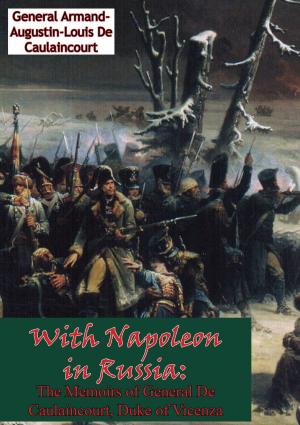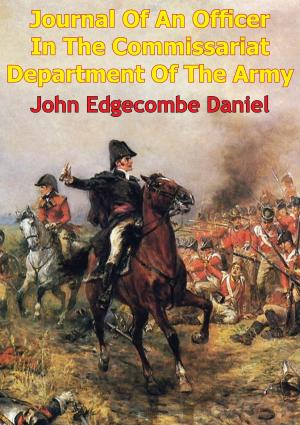Innovator Or Imitator: Napoleon's Operational Concepts And The Legacies Of Bourcet And Guibert
Nonfiction, History, Spain & Portugal, France, Military| Author: | Lt.-Col James N. Wasson | ISBN: | 9781782895879 |
| Publisher: | Wagram Press | Publication: | August 15, 2014 |
| Imprint: | Wagram Press | Language: | English |
| Author: | Lt.-Col James N. Wasson |
| ISBN: | 9781782895879 |
| Publisher: | Wagram Press |
| Publication: | August 15, 2014 |
| Imprint: | Wagram Press |
| Language: | English |
In 1805, a new style of operational warfare burst upon the fields of Europe as Napoleon Bonaparte’s Grand Army swept from the Rhine to the Danube surrounding the Austrian army at Ulm and initiating a revolution in military affairs (RMA) whose effects are still felt today. The question remains whether this new style of warfare was merely a natural outgrowth of the work of 18th century military thinkers, whose theories were imitated by a dynamic leader, or did Napoleon bring something new to warfare, a true innovation in the conduct of operational warfare? This is the central question that this monograph will attempt to answer.
David Chandler maintains that “Napoleon contributed little new.” As we struggle today with the implications of a possible RMA, it is important that we fully understand the forces that caused former RMA’s to occur. For the historian, it is also important that we get our interpretations of past events as correct as possible. Was this a RMA that would have happened with any energetic leader who strictly followed the teachings of Bourcet and Guibert, as a sort of TTP put together by theorists, or did Napoleon take their theories, and meld them with his own ideas to create a new form of warfare and initiate a RMA? Does a true RMA require more than just theories and doctrine, does it require an inquiring mind on the part of the practitioner as well? These questions give relevance to the research question of this monograph.
The monograph concludes that Napoleon did not imitate the two thinkers, and that the RMA initiated by him was more than just an implementation of techniques proposed by theorists. The RMA in 1805 required an imaginative practitioner who could grasp the salient features of theory and put them to use in new ways. To initiate the RMA innovation by the war fighter was required, not mere imitation.
In 1805, a new style of operational warfare burst upon the fields of Europe as Napoleon Bonaparte’s Grand Army swept from the Rhine to the Danube surrounding the Austrian army at Ulm and initiating a revolution in military affairs (RMA) whose effects are still felt today. The question remains whether this new style of warfare was merely a natural outgrowth of the work of 18th century military thinkers, whose theories were imitated by a dynamic leader, or did Napoleon bring something new to warfare, a true innovation in the conduct of operational warfare? This is the central question that this monograph will attempt to answer.
David Chandler maintains that “Napoleon contributed little new.” As we struggle today with the implications of a possible RMA, it is important that we fully understand the forces that caused former RMA’s to occur. For the historian, it is also important that we get our interpretations of past events as correct as possible. Was this a RMA that would have happened with any energetic leader who strictly followed the teachings of Bourcet and Guibert, as a sort of TTP put together by theorists, or did Napoleon take their theories, and meld them with his own ideas to create a new form of warfare and initiate a RMA? Does a true RMA require more than just theories and doctrine, does it require an inquiring mind on the part of the practitioner as well? These questions give relevance to the research question of this monograph.
The monograph concludes that Napoleon did not imitate the two thinkers, and that the RMA initiated by him was more than just an implementation of techniques proposed by theorists. The RMA in 1805 required an imaginative practitioner who could grasp the salient features of theory and put them to use in new ways. To initiate the RMA innovation by the war fighter was required, not mere imitation.











![Cover of the book Nelson And His Captains: Sketches Of Famous Seamen [Illustrated Edition] by Lt.-Col James N. Wasson](https://www.kuoky.com/images/2015/november/300x300/9781786253736-0YSn_300x.jpg)



